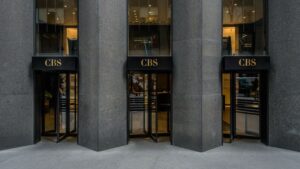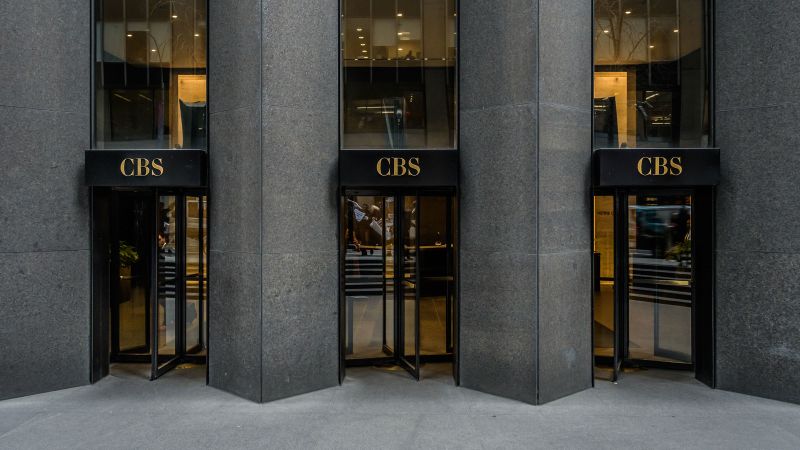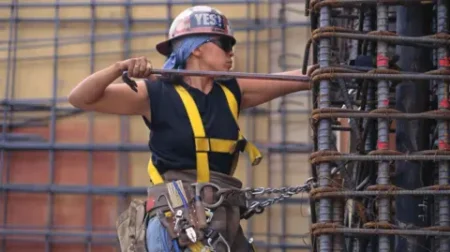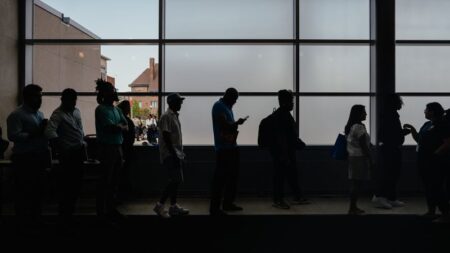The recent legal skirmish involving Paramount Global and former President Donald Trump has ignited a considerable uproar, primarily over the implications of the settlement reached in a lawsuit that many believe Paramount could have effectively contested in court. Critics argue that Paramount’s decision to cave to pressure from the former president illustrates a disconcerting precedent. Al Tompkins, a respected journalism professor, aptly noted the oddity of labeling this outcome a “settlement” when it yields an unsettling reality for media integrity.
Amidst this turbulent backdrop, employees of CBS News, a subsidiary of Paramount, have voiced widespread anxiety over the potential ramifications of this case. One anonymous staff member candidly expressed that there is a growing sense of apprehension about the future of the newsroom. Even though Trump’s lawsuit is now a closed chapter, many fear that his aggressive legal tactics may create a chilling effect for media outlets down the line. “Behavior that gets rewarded gets repeated,” emphasized the Foundation for Individual Rights and Expression, warning that this settlement could embolden Trump to pursue even more baseless lawsuits against the press in an attempt to undermine the press’s ability to function unimpeded.
The dilemma facing newsrooms and other organizations targeted by the former president is stark: Should they stand their ground or capitulate under pressure? The implications of either action evoke a broader concern regarding audience perception. Would the public react unfavorably to media outlets that choose to fold in the face of intimidation? Commenting on the lawsuit when it was first filed, Rebecca Tushnet, the Frank Stanton Professor of First Amendment Law at Harvard Law School, dismissed it as utterly ludicrous. However, upon learning of Paramount’s decision to settle, she expressed profound disappointment in a follow-up exchange, pointing out that yielding to such pressures signals a concerning capitulation, especially in a society where the dangers of authoritarianism are becoming increasingly visible.
Another aspect of this controversy lies in the allegations concerning the motives behind Paramount’s settlement—claims that the decision was inextricably tied to the pending merger negotiations with Skydance Media. Critics, including Democratic lawmakers, have drawn parallels between the settlement and bribery, asserting that this is indicative of a troubling dynamic between corporate interests and government influence. Senator Elizabeth Warren explicitly stated that the optics of the settlement are concerning, while Senator Ron Wyden condemned the corporate malfeasance that purportedly undermines democratic principles.
The settlement stipulates that Trump will withdraw his suit in exchange for $16 million to assist in funding his presidential library, mirroring a previous agreement made between Disney and Trump. Jameel Jaffer, executive director of the Knight First Amendment Institute at Columbia University, remarked that Trump’s library will stand as an enduring symbol of Paramount’s capitulation to pressure, while other advocates for press freedom labeled the decision “shameful” and indicative of weakness.
Media responses to this settlement have been varied. While the conservative editorial board of the Wall Street Journal criticized Trump for his tactics against journalists, many have pointed out how Paramount has borne the brunt of the criticism. This reaction highlights how media organizations find themselves at the intersection of legal battles, political dynamics, and audience expectations. With Trump continuously framing his actions as a quest for accountability against “fake news,” it becomes clear that the stakes for the press in this new landscape are perilously high.
Furthermore, as the legal battle and its consequences unfold, numerous journalists emphasize the importance of transparency in their reporting processes. CBS News, under pressure, ultimately released the full transcript of a controversial interview with then-Vice President Kamala Harris, a move that reaffirmed the argument that Trump’s legal case was fundamentally weak. This scenario begs the question: Do the interests of corporate media align with those of independent journalism, and at what cost?
Despite the outcry surrounding the settlement, many CBS News employees and journalists involved aspire to push through these challenges and continue delivering the critical news coverage that has affirmed their commitment to integrity and independence. In the end, Tompkins succinctly encapsulated the essence of the issue at hand: the settlement is a reflection of a vindictive leader and corporate decisions that fail to honor the foundational principles of owning a news organization, principles that require acting independently in journalistic endeavors.











